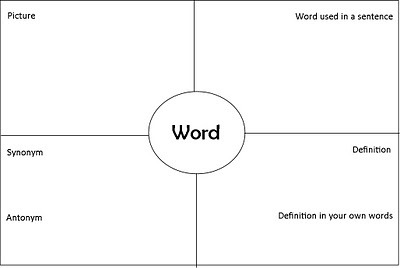
3. Summary Review-We are going to look at the passage from yesterday and discuss the correct answers.
4. Homophones-Homophones can be very confusing for readers of any level. Today we are going to assess how well you know your homophones.
homophone-One of two or more words, such as night and knight, that are pronounced the same but differ in meaning, origin, and sometimes spelling.
What do you think the word enlighten means? Why do you think so? How do you think this word might be used to describe a period of history?
7. Enlightenment-Today we are going to begin looking at the period in history referred to as "The Age of Enlightenment".
8. Enlightenment Reporter-A reporter's main job is to get answers to questions. You are going to spend the next few days researching the Age of Enlightenment. You will then answer, on a blank sheet of paper, the following questions:
WHAT-What was the Age of Enlightenment? Be sure to fully explain your answers.
WHO-Pick 4 important people from the Enlightenment. Tell me who they were and why they were important to the Enlightenment.
WHEN-Pick and explain at least 3 important dates from the Enlightenment. Explain why the dates you chose are important to the Enlightenment.
WHAT-What was the Age of Enlightenment? Be sure to fully explain your answers.
WHO-Pick 4 important people from the Enlightenment. Tell me who they were and why they were important to the Enlightenment.
WHEN-Pick and explain at least 3 important dates from the Enlightenment. Explain why the dates you chose are important to the Enlightenment.
HOW-Explain in detail how the Enlightenment started. What happened before that led to this movement?
WHY-Why did this movement happen? Why was it so important to the world? Why is it still important?
WHERE-What were some of the important locations of the Enlightenment?
No comments:
Post a Comment